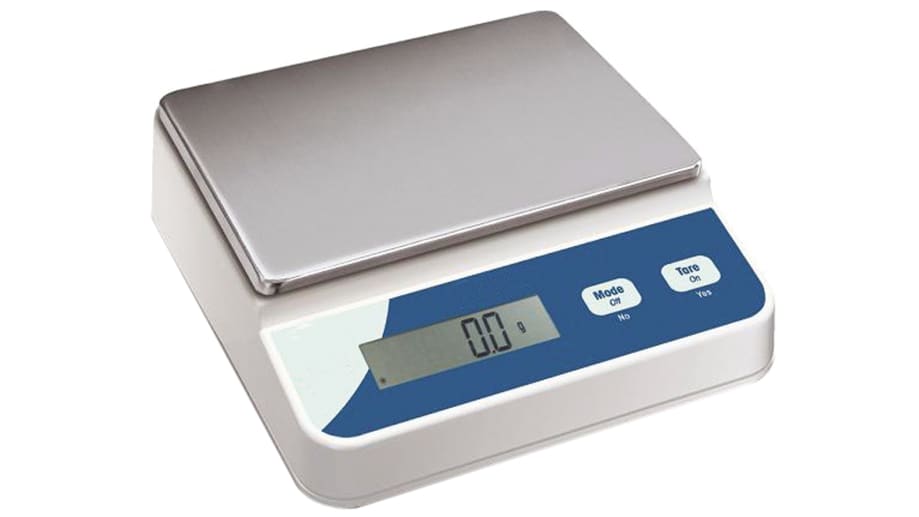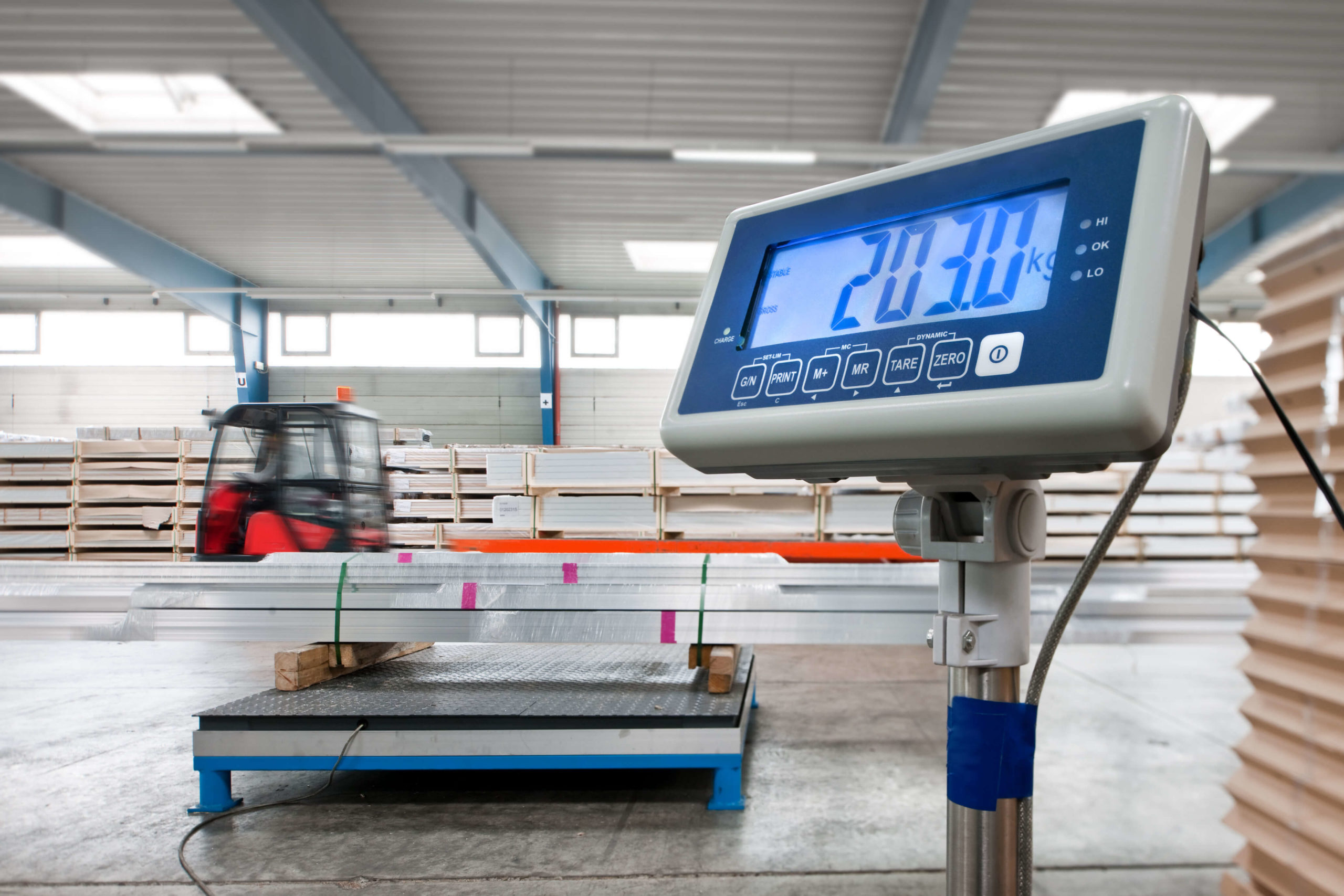The Impact of Industrial Scales on Cost Savings and Operational Efficiency
The Impact of Industrial Scales on Cost Savings and Operational Efficiency
Blog Article
Just How Industrial Scales Job: A Thorough Introduction for New Users
Comprehending the mechanics behind industrial scales is critical for brand-new individuals that intend to make certain accuracy in their measurements. These gadgets count on tons cells and pressure scale technology to convert weight right into a quantifiable layout, however the nuances of their operation extend past plain capability. From the different kinds readily available to the necessary strategies for correct usage and maintenance, each facet plays a substantial duty in achieving dependable results. As we check out these components, one need to think about exactly how these elements engage to boost performance in varied commercial applications.
Essentials of Industrial Scales
Industrial scales are important tools made use of throughout numerous markets, consisting of manufacturing, logistics, and farming, to ensure exact weight measurements of hefty tons. The essential concept behind industrial ranges includes the conversion of weight into a measurable form that can be shown digitally or analogically. These scales use different mechanisms, such as lots cells or mechanical bars, to identify the weight of objects placed upon them.

Along with their measurement abilities, industrial scales are designed to hold up against rough atmospheres, featuring robust building that resists dirt, moisture, and heavy effects. Calibration and maintenance are essential to ensure precision, as even minor inconsistencies can bring about considerable monetary effects. By understanding the basics of industrial ranges, customers can value their significance in different commercial applications.
Sorts Of Industrial Scales
Numerous sorts of commercial ranges accommodate the diverse needs of various industries, each made to handle certain considering tasks with precision and integrity. Amongst one of the most usual kinds are flooring scales, which are ideal for evaluating bulky and heavy items. These scales commonly include huge systems and can fit palletized products, making them important in storage facilities and delivery facilities.
One more type is bench ranges, which are commonly utilized for smaller things in manufacturing and retail setups. They offer exact measurements for items that call for precision, such as chemicals or components in production line (Industrial Scales). For mobile operations, mobile scales provide versatility and convenience of transport, ideal for fieldwork or short-lived installations
Furthermore, specialized scales like checkweighers are made use of in manufacturing lines to maintain quality control by guaranteeing that products fulfill weight requirements. Each kind of industrial scale plays an essential role in improving functional effectiveness and precision across various sectors.
Exactly How Evaluating Devices Job
Weighing devices are crucial elements that allow exact dimension of mass across different commercial ranges. These mechanisms use numerous principles of physics and design to supply specific weight readings, essential for supply monitoring, quality control, and compliance with regulative criteria.
One common sort of evaluating device is the lots cell, which runs on the principle of strain gauges. When a load is used, the load cell deforms a little, generating an electric signal symmetrical to the weight. This signal is then transformed right into an understandable weight dimension by the scale's electronics.
One more widely utilized mechanism is the mechanical balance, which utilizes a system of bars and weights. Industrial Scales. This technique counts on the concept of balance, where the weight of the item being gauged is stabilized against known weights, permitting for straight dimension
Furthermore, hydraulic and pneumatically-driven ranges leverage liquid characteristics principles to gauge weight. These systems make use of the stress applied by a lots to determine weight, using high precision for substantial tons.
Appropriate Use Methods
When using industrial scales, adhering to appropriate use methods is critical for preserving and ensuring exact measurements devices integrity. It is important to pick why not check here the ideal scale for your details application, as ranges vary in capacity and accuracy.
Prior to weighing, ensure that the scale is put on a stable, level surface devoid of vibrations or disruptions. This will assist to minimize errors triggered by exterior elements. In addition, adjust the scale according to the supplier's specifications before utilize, making sure that it is working properly.
When putting products on the range, disperse the weight evenly to stay clear of tipping or damaging the equipment. Always permit the scale to support before recording the weight, as fluctuations might take place throughout initial placement. For bulk products, make use of containers that are proper for the range size to avoid overloading.
Moreover, stay clear of positioning chilly or extremely warm things straight on the range, as temperature variations can impact precision. Maintain the considering system totally free and tidy of particles to avoid contamination and ensure dependable results. By complying with these methods, users can take full advantage of the efficiency and longevity of their industrial scales.
Upkeep and Calibration Tips
Guaranteeing the durability and accuracy of industrial scales requires persistent maintenance and routine calibration. A preventive upkeep routine is vital; it must consist of routine examinations to recognize wear and tear, especially on tons cells and various other delicate elements. Consistently cleaning the scale's surface and making sure the bordering location is cost-free from particles will certainly assist maintain its integrity and performance.
Calibration is similarly important and must be executed at regular periods or whenever the scale experiences considerable modifications in temperature level, humidity, or physical find more variation. Use licensed calibration weights that are traceable to national requirements for accuracy. Record each calibration session meticulously to track performance gradually and determine any kind of trends or recurring issues.
Additionally, be conscious of the range's environment. Stay clear of placing it near sources of vibration, electromagnetic interference, or extreme temperatures, as these aspects can negatively impact dimensions. Ultimately, train all drivers on correct range use and maintenance procedures to make sure regular performance and precision. By adhering to these upkeep and calibration pointers, individuals can boost the reliability of their commercial ranges, guaranteeing optimum procedure in any kind of setting.
Final Thought

Understanding the technicians behind industrial ranges is essential for brand-new individuals who desire to guarantee accuracy in their measurements.Industrial scales are essential tools made use of throughout numerous sectors, including production, logistics, and agriculture, to make certain exact weight dimensions of heavy loads. The fundamental principle behind industrial scales involves the conversion of weight right into a measurable type that can this page be shown digitally or analogically. By understanding the basics of commercial ranges, users can appreciate their value in various industrial applications.
In final thought, comprehending the operation and maintenance of industrial ranges is essential for making certain exact weight measurements in various applications. (Industrial Scales)
Report this page